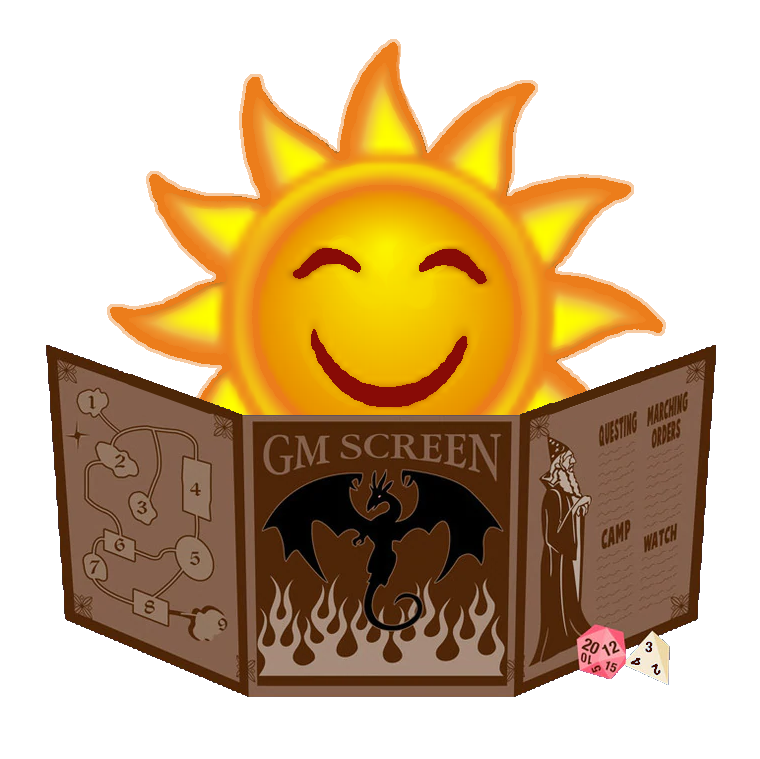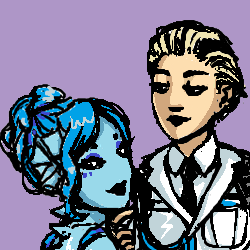“Valor, you cry. The song is dead in your mouth. You speak corpses and think you know Faith. I have seared my eyes upon the Gods. Surrender, for I am the Divine Conqueror. I leave no doubt in my wake.”
, also known as the
Divine Tongue or
Sacred Tongue, is the language of the
Gods. Anyone can learn to pronounce and understand Celestial, but few can learn how to truly speak it. Most speakers can only truly learn a word or two, and can otherwise only be understood by others who have studied Celestial. A true speaker is universally understood when they speak Celestial, even when the listener has never heard Celestial before and has no other language in common with the speaker.
The only humanoid who can speak true Celestial fluently is the High Monarch of the Castellan Kingdoms, who is bestowed the language as one of the
Twelvefold Blessings.
Structure
Celestial is a polysynthetic and rythmic language, where a single word can often serve as an entire sentence. A word is composed of several morphemes that add to the meaning of the word. An example from the
Thaumaglossia is the lesser invocation colloquially called the Healing Word.
màgaehélèntós
màg-a-e-hél-(h)èn-tós
make-I-you-whole/healthy-inside-from
"I heal you"
The Healing Word is constructed from six morphemes, and usually spoken over eight beats, with a beat of silence between én and tos. Màg or "Make" is held for two beats, when elongated to three the meaning shifts to "ease", when it is shortened to one it becomes "force".
Ecclesial Celestial
Ecclesial Celestial is the Celestial used by the clergy of the Temple of the Twelve. It is more accurate to say that Ecclestial Celestial is composed and preformed than to say it is spoken, as most preformers of Ecclestial Celestial cannot form sentences or even construct basic words of their own.
Even experienced composers and scholars of Celestial struggle to speak it, and usually rely on a simplified grammar where the morphemes are transformed into words and used in a similar structure to
Imperial Common to communicate using Ecclesial Celestial.
Celestial Choirs
When a choir sings together in Celestial the harmony can occasionally bridge into true Celestial even if none of the singers themselves are true speakers. These transcendental choirs are rare, perfecting the harmonies that bring out the true celestial takes decades of practice.
Temples will usually have one or more members of the clergy reciting tales and myths about the twelve, and the language is often described as song-like and hymnal, even in temples that do use a single speaker rather than a Celestial Choir.
Thaumaglossia
Thaumaglossia is the proper term for Celestial as a Spellcasting Language. The term Thaumaglossia is derived from
Sirenic θαῦμα (
c: thaûma, “wonder, miracle”) and γλῶσσα (
c:glôssa, “tongue, language”). The word can be translated to "Miracle Tongue" or "The Language of Miracles". To use the Thaumaglossia, a divine caster must invest their magic into the words.
The Thaumaglossia builds on Ecclesial Celestial, and much like the Ecclesial variant most of the divine casters who do use Thaumaglossia are unable to speak or form sentences in the language.
Theologists have long debated if the power of Thaumaglossia derives from the divine nature of the words or the beliefs and the meaning the language holds to the caster. It certainly holds true that the Thaumaglossia has little value to a spellcaster that is not particularly religious.
Some of the most powerful invocations known in the realm, the divine Words of Power, are Thaumaglossia.








A really fascinating take on the "true tongue" trope :D Like i've already said, the "you speak corpse" line is really striking. I also like the detail about the grammar and how lengthening syllabes change meaning. No wonder few people can speak it fluently XD
Thank you so much! I'm glad you like the opening quote, I'm always worried how they'll come across. I think the polysynthetic nature is one of my favourite additions, it's such a cool linguistic feature